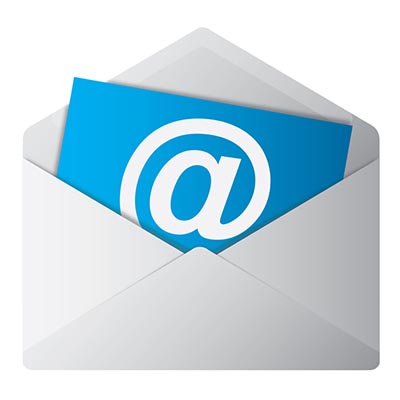Most businesses depend heavily on email. More than 124 billion business emails are sent and received every day, which gives some idea of how central email has become to business communications. But do you know how secure your email communications are? Email is often targeted by scammers and security is a priority for any business. Here are some tips to make sure your email security is up to speed.
Make Use of Filters
As the name suggests, filters can weed out junk and spam email. It’s an easy solution to getting torrents of irrelevant email in your inbox, and simple for staff to use. Spam-blocking doesn’t only free up your employees from having to check unimportant mail. As part of an antivirus strategy it can also filter out messages containing unsafe attachments that are vehicles for malware.
Smarter Email Usage
Antivirus programs and spam filters are essential but they can’t cover everything. To maximize email security, you and your staff need to know what to look out for. Do you know what a phishing email looks like, and what the warning signs of unsafe messages are? Awareness of the way scammers use email to hack email accounts and spread malware is an important defense against getting conned. All businesses should educate their staff in email management.
Protect Your Information
Unless you’re confident that your email is encrypted, or is going to a safe and trusted recipient, don’t include sensitive information in your messages. Personal information, financial details and confidential material needs to be handled securely. Businesses also have an important responsibility to keep their customers’ personal data safe.
Email should be secured by using strong passwords or other access security measures, such as biometrics. Two-factor authentication (2FA) can be useful for additional protection. Don’t make your email addresses more widely available than necessary. The fewer people who have access to your details the greater your email security will be.
Login and Logout Procedures
Sometimes there are circumstances where people have to use a publicly accessible device to access or send mail. It’s important to terminate the session afterwards, by ensuring that you’ve logged out. You should also clear the cache, for extra security.
It’s easy today to allow browsers to save your passwords and login details, so that they appear automatically when you’re required to log in to a website or service. It’s convenient but it can be risky on publicly accessible devices. In general, it’s best to use a password manager, rather than making it easy for anyone using your workstation or device to log in and out using your information.
Quikteks can help you set up an email security policy that will work to ensure that your employees are trained, and you have the solutions you need to keep any sensitive emails away from prying eyes. Call us today at (973) 882-4644 to learn more.

